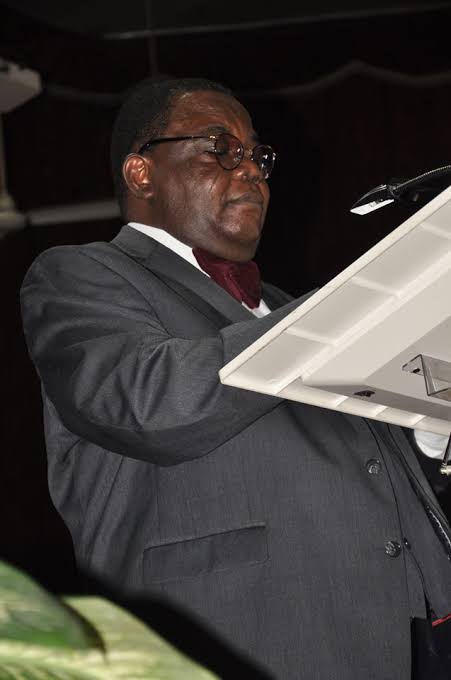The Supreme Court on Tuesday dismissed the application by the People’s Democratic Party candidate in Imo State Emeka Ihedioha, saying that it can’t not reverse itself on a matter it had earlier adjudicated.
But it was the minority opinion of one of the seven-man panel of the Supreme Court justices that made the headlines.
Justice Centus Nweze minced no words in his own minority opinion in asserting that decision of the Court on the Imo governorship election is wrong and “will continue to haunt our (Nigeria’s) electoral jurisprudence for a long time to come.
Mr Ihedioha had asked the apex court to set aside its judgment on Imo governorship that declared Hope Uzodinma of the All Progressives Congress (APC) governor of Imo State.
The court, led by the Chief Justice of Nigeria (CJN), Tanko Mohammed, held that it lacked powers to sit on appeal in its own judgment delivered on merit and in accordance with dictates of the law and justice.
In dismissing the application, the justices with the majority judgment include the CJN, Olukayode Ariwoola, Sylvester Ngwuta, Kudirat Kekere-Ekun, Amina Augie and Uwani Abba-Aji.
But in his dissenting judgment, Justice Nweze held that a judgment or order can be set aside on merit. He said the apex court has the power to overrule itself and has done so in the past.
Mr Nweze was not part of the original seven-member panel that nullified Mr Ihedioha’s election on January 14.
He was added to the panel in place of Amiru Sanusi, who retired from the apex court in January.
In giving his dissenting judgment on Tuesday, Mr Nweze nullified the declaration of Mr Uzodinma as governor on account of the wrong declaration.
According to the erudite jurist, Uzodinma mischievously misled the court into unjust conclusion with the unverified votes credited to himself in the disputed 388 polling units.
“In my intimate reading of the January 14 judgment, the meat and substance of Ihedioha’s matter were lost to time frame. This court once set aside its own earlier judgment and therefore cannot use the time frame to extinguish the right of any person.
“This court has powers to overrule itself and can revisit any decision not in accordance with justice,” he said.
According to Mr Nweze, “The decision of the Supreme Court in the instant matter will continue to haunt our electoral jurisprudence for a long time to come.”
He added that without evidence of meeting other constitutional provisions, the court misled itself into declaring Mr Uzodinma as governor.
The judge said that Mr Uzodinma and his party misled the court to accept the allegedly excluded results in 388 polling units without indicating the votes polled by other political parties.
He also faulted the results from the said polling units without indicating the number of accredited voters in the polling units.
Mr Nweze recalled how Mr Uzodinma, during the election tribunal, admitted that he hijacked the result sheets from the electoral umpire officials and completed the result sheets by himself.
He said such results could not be valid without indicating the number of accredited voters.
“This court has a duty of redeeming its image, it is against this background that the finality of the court cannot extinguish the right of any person.
“I am of the view that this application should succeed. I hereby make an order repealing the decision of this court made on January 14 and that the certificate of return issued to the appellant returned to INEC.
“I also make an order restoring the respondents as the winner of the March 9, 2019 governorship election,” Mr Nweze said in his minority ruling which was, however, overruled by the majority decision.














